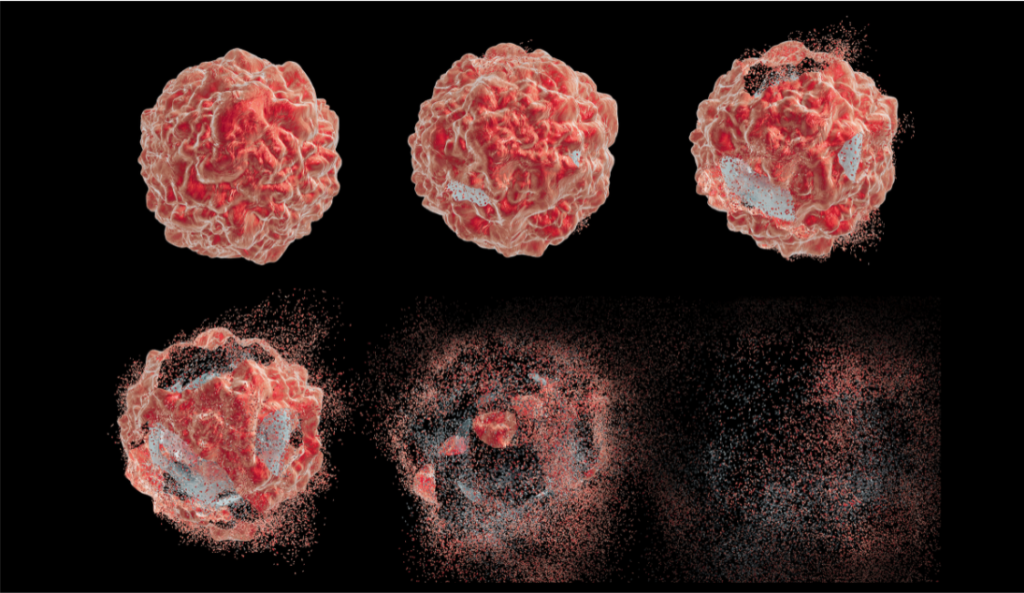In this research paper, researchers demonstrate a promising new treatment option for refractory metastatic gastrointestinal cancers using a combination of two FDA-approved drugs.
Researchers Jun Zhang, Lanlan Zhou, Shuai Zhao, and Wafik S. El-Deiry from Fox Chase Cancer Center and Brown University explore the potential of combining TAS102 (trifluridine/tipiracil) and regorafenib as a treatment option for gastrointestinal (GI) cancers. Their research paper, published in Oncotarget’s Volume 15 on July 2, 2024, is entitled, “Regorafenib synergizes with TAS102 against multiple gastrointestinal cancers and overcomes cancer stemness, trifluridine-induced angiogenesis, ERK1/2 and STAT3 signaling regardless of KRAS or BRAF mutational status.”
The Study
The combination of two FDA-approved drugs, TAS102 and regorafenib, has shown promising results in preclinical studies. TAS102 is an oral formulation consisting of trifluridine (FTD) and tipiracil hydrochloride (TPI). It has been approved by the US FDA for the treatment of refractory metastatic colorectal cancer and metastatic gastric cancer. Regorafenib is a multi-target tyrosine kinase inhibitor that inhibits tumor angiogenesis and cell proliferation and is approved for the treatment of gastrointestinal cancers.
Recent studies have shown that TAS102, in combination with regorafenib, can lead to improved survival and restrict tumor progression. The combination therapy has been found effective in multiple gastrointestinal cancer cell lines, including colorectal, gastric, and pancreatic cancers.
Cancer stem cells (CSCs) are a subpopulation of cancer cells that contribute to tumor growth, recurrence, and chemo-resistance. Targeting CSCs can be an effective approach to overcoming therapy resistance and preventing tumor progression. TAS102, in combination with regorafenib, has been shown to reduce the stemness of colorectal cancer cells, inhibiting the formation of colonospheres and reducing the CD133+ subpopulation.
Tumor angiogenesis, the formation of new blood vessels, is essential for tumor growth and metastasis. TAS102 monotherapy has been found to promote angiogenesis in tumors harboring a BRAF mutation. However, when combined with regorafenib, TAS102-induced angiogenesis is abrogated, as regorafenib inhibits the formation of microvessels in xenografted tumors.
The combination therapy of TAS102 and regorafenib regulates several signaling pathways, including ERK1/2 and STAT3, and modulates the expression of thymidylate synthase (TS), which is involved in drug resistance.
Conclusion
The combination of TAS102 and regorafenib shows synergistic effects in preclinical studies, inhibiting tumor growth, reducing the stemness of cancer cells, and inhibiting angiogenesis. Further research is needed to explore the efficacy of this combination therapy in clinical settings and to identify potential biomarkers of drug sensitivity. The TAS102 plus regorafenib drug combination may be further tested in gastric and other GI cancers.
“Recent studies have shown that TAS102 in combination with regorafenib can lead to improved survival and restrict tumor progression.”
Click here to read the full research paper in Oncotarget.
—
Oncotarget is an open-access, peer-reviewed journal that publishes primarily oncology-focused research papers. These papers are available to readers (at no cost and free of subscription barriers) in a continuous publishing format at Oncotarget.com.
Oncotarget is indexed and archived by PubMed/Medline, PubMed Central, Scopus, EMBASE, META (Chan Zuckerberg Initiative), and Dimensions (Digital Science).
Click here to subscribe to Oncotarget publication updates.
For media inquiries, please contact media@impactjournals.com.

